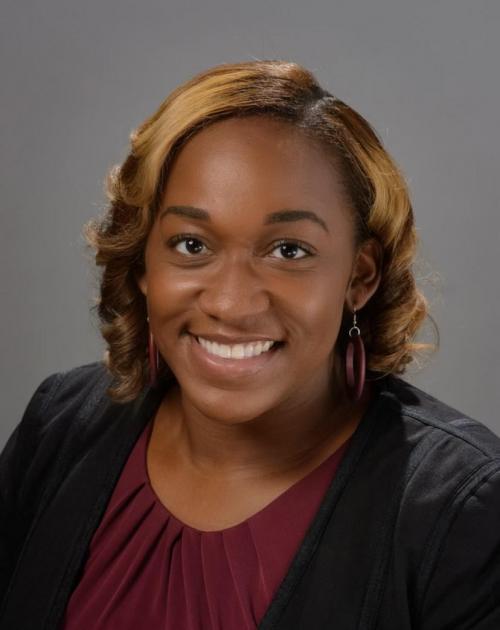Opening with a poignant narrative of the reality of violent Black deaths and America’s desensitization to this cultural violence, UMD Criminology & Criminal Justice Assistant Professor Brooklynn Hitchens writes of the importance of considering the impact of structural disadvantage and community violence on survivors in an editorial article for the Rockefeller Institute of Government’s Regional Gun Violence Research Consortium.
Hitchens emphasizes that the study of gun violence should not only focus on victims, but also “the extended network of family, peers, and community members who are left behind.” She asserts that the Black community, particularly Black women and girls, are at higher risk to be homicide survivors, and these experiences have critical consequences for their lives and well-being. Homicide survivors are “co-victims” who vicariously experience the loss of a loved one to homicide and survive the experience.
“For these women and girls, surviving gun homicide can be a kind of living death,” Hitchens writes. “Urban Black women and girls are more often exposed to community violence, such as witnessing someone being shot, seeing a dead body, or even being shot by guns themselves.”
In cities such as Philadelphia, Baltimore, and Wilmington, DE – Hitchens utilizes a community-engaged method called street participatory action research (Street PAR), which actively includes members of the “researched” throughout the research process. In this way, Hitchens’ research is a collaboration with the communities she seeks to better understand.
To examine the “lived experiences” of those enmeshed in the criminal justice system and street violence, Hitchens uses ethnography and in-depth interviews to delve into the stories of Black women and girls who experience victimization and bear the collateral consequences of surviving violence in their neighborhoods. By analyzing these perspectives, Hitchens aims to identify “deeper meanings about urban inequality more broadly.”
In the op-ed, Hitchens writes of a Black mother identified with the pseudonym “Sylvia,” who described her experiences with loss.
“You know, when something like this happens, you have to learn to live and laugh again,” Sylvia said at a youth anti-violence summit in Wilmington, DE. “I remember being so scared to go in the grocery store, because people don’t know you as ‘Sylvia no more. They know you as ‘Sylvia, whose child has been murdered.’ And that’s how I thought everybody looked at me. So, it took me a while to learn to live again.”
Through examination of the resilience Black women and girls exude as they cope with loss and harm, Hitchens recommends policies at both the federal and local level to reduce urban gun violence. One key policy recommendation includes offering comprehensive, trauma-informed services for homicide survivors, such as grief support and counseling, therapy, conflict mediation, and hospital-based violence interventions. She contends that most Black homicide survivors do not seek therapy or grief support following their traumatic loss, sometimes due to barriers in access and other times due to stigma associated with therapy. Closing the gap in access and stigma of these services can potentially mitigate antisocial behaviors such as retaliatory violence, self-inflicted harm, and aggression.
Hitchens argues policies addressing gun violence must take into consideration “the causes and unintended consequences of the violence” including the trauma experienced by those who survive a violent death in disadvantaged communities. “Scholars, practitioners, and policymakers,” Hitchens writes, “must remember that just because these women are able to exhibit resilience in the face of extreme adversity does not mean it is a just burden for them to bear.”
Read the op-ed here.



